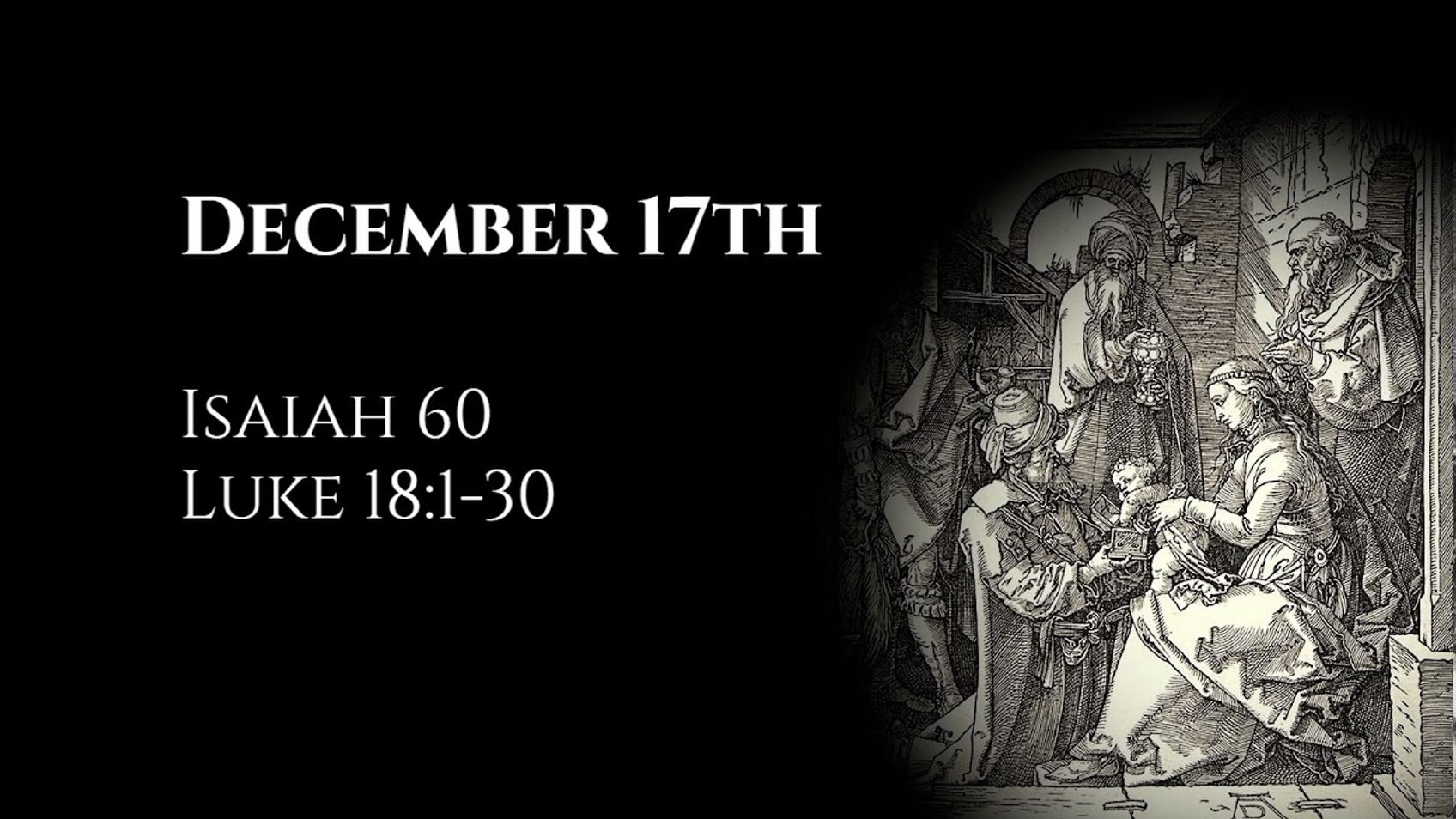December 17th: Isaiah 60 & Luke 18:1-30
December 16, 2021

Alastair Roberts
Arise, shine, for your light has come! The Parable of the Persistent Widow, the Parable of the Tax Collector and the Pharisee, and the Rich Ruler.
My reflections are searchable by Bible chapter here: https://audio.alastairadversaria.com/explore/.
If you are interested in supporting this project, please consider supporting my work on Patreon (https://www.patreon.com/zugzwanged), using my PayPal account (https://bit.ly/2RLaUcB), or buying books for my research on Amazon (https://www.amazon.co.uk/hz/wishlist/ls/36WVSWCK4X33O?ref_=wl_share).
You can also listen to the audio of these episodes on iTunes: https://itunes.apple.com/gb/podcast/alastairs-adversaria/id1416351035?mt=2.
More From Alastair Roberts
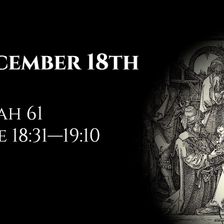
December 18th: Isaiah 61 & Luke 18:31—19:10
Alastair Roberts
December 17, 2021
The Spirit of the Lord is upon me. Jesus in Jericho.
My reflections are searchable by Bible chapter here: https://audio.alastairadversaria.com/explor
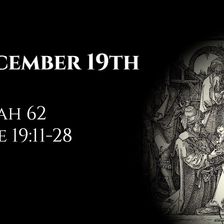
December 19th: Isaiah 62 & Luke 19:11-28
Alastair Roberts
December 18, 2021
Zion restored and renamed. The Parable of the Minas.
My reflections are searchable by Bible chapter here: https://audio.alastairadversaria.com/explor
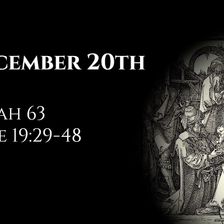
December 20th: Isaiah 63 & Luke 19:29-48
Alastair Roberts
December 19, 2021
The Divine Warrior coming from Edom. The Triumphal Entry.
My reflections are searchable by Bible chapter here: https://audio.alastairadversaria.com/e
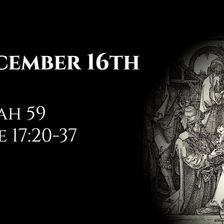
December 16th: Isaiah 59 & Luke 17:20-37
Alastair Roberts
December 15, 2021
The Lord clothing himself with salvation. The coming of the kingdom of God.
My reflections are searchable by Bible chapter here: https://audio.alasta
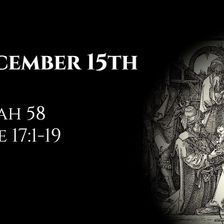
December 15th: Isaiah 58 & Luke 17:1-19
Alastair Roberts
December 14, 2021
The fast that the Lord delights in. True servants, cleansing the ten lepers.
My reflections are searchable by Bible chapter here: https://audio.alast
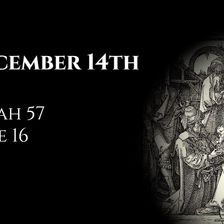
December 14th: Isaiah 57 & Luke 16
Alastair Roberts
December 13, 2021
Israel's idolatry. The Parables of the Unjust Steward and the Rich Man and Lazarus.
My reflections are searchable by Bible chapter here: https://audi
More on OpenTheo

Sense, Sensibility, and Adam Smith with Jan Van Vliet
Life and Books and Everything
February 16, 2026
This year is a special anniversary for the United States as Americans celebrate 250 years of independence. But 1776 was an important year in more ways

Why Would Any Rational Person Have to Use Any Religious Book?
#STRask
December 8, 2025
Questions about why any rational person would have to use any religious book, whether apologetics would be redundant if there were actually a good, un

Conservatism and Religious Freedom with John Wilsey
Life and Books and Everything
October 27, 2025
What is conservatism? And why does it go hand in hand with religious freedom? How should we think about the American experiment of ordered liberty? Ha

What About Those Who Never Heard the Name of Jesus?
#STRask
December 22, 2025
Questions about what will happen to those who never heard of Jesus or were brought up in a different faith, whether there’s biblical warrant to think

Prove to Me That Jesus Is Not a Created Being
#STRask
January 26, 2026
Questions about why we should think Jesus is not a created being, and what it means to say God became fully human if part of being human means not bei

Did Jesus Prove He Wasn’t Sinless When He Overturned the Tables?
#STRask
December 29, 2025
Questions about whether Jesus proved he wasn’t sinless when he overturned the tables, whether Jesus’ response to the Pharisees in Mark 3:22–26 was a b

Can You Recommend Good Books with More In-Depth Information and Ideas?
#STRask
January 22, 2026
Questions about good books on Christian apologetics, philosophy, and theology with more in-depth information and ideas, and resources to help an intel

What Is Wrong with Wokeness? With Neil Shenvi
Life and Books and Everything
January 19, 2026
In this timely interview, Kevin talks to Neil Shenvi about his new book (co-authored with Pat Sawyer), entitled “Post Woke: Asserting a Biblical Visio

Keri Ingraham: School Choice and Education Reform
Knight & Rose Show
January 24, 2026
Wintery Knight and guest host Bonnie welcome Dr. Keri Ingraham to discuss school choice and education reform. They discuss the public school monopoly'

How Can I Explain Modesty to My Daughter?
#STRask
November 27, 2025
Questions about how to explain modesty to a nine-year-old in a way that won’t cause shame about her body, and when and how to tell a child about a pre

Why Are So Many Christians Condemning LGB People Just Because of How They Love?
#STRask
January 15, 2026
Questions about Christians condemning LGB people just because of how they love, how God can expect someone to be celibate when others are free to marr

How Do You Justify Calling Jesus the Messiah?
#STRask
December 18, 2025
Questions about how one can justify calling Jesus the Messiah when he didn’t fulfill the Hebrew messianic prophecies, and whether the reason for the v

Why Do We Say Someone Was Saved on a Particular Date If It Was Part of an Eternal Plan?
#STRask
November 24, 2025
Questions about why we say someone was saved on a particular date if it was part of an eternal plan, the Roman Catholic view of the gospel vs. the Bib

Is It a Sin to Feel Let Down by God?
#STRask
November 6, 2025
Questions about whether it’s a sin to feel let down by God and whether it would be easier to have a personal relationship with a rock than with a God

Why Is It Necessary to Believe Jesus Is God?
#STRask
February 19, 2026
Questions about why it’s necessary to believe Jesus is God, whether belief in the Trinity is required for salvation, and why one has to believe in the
